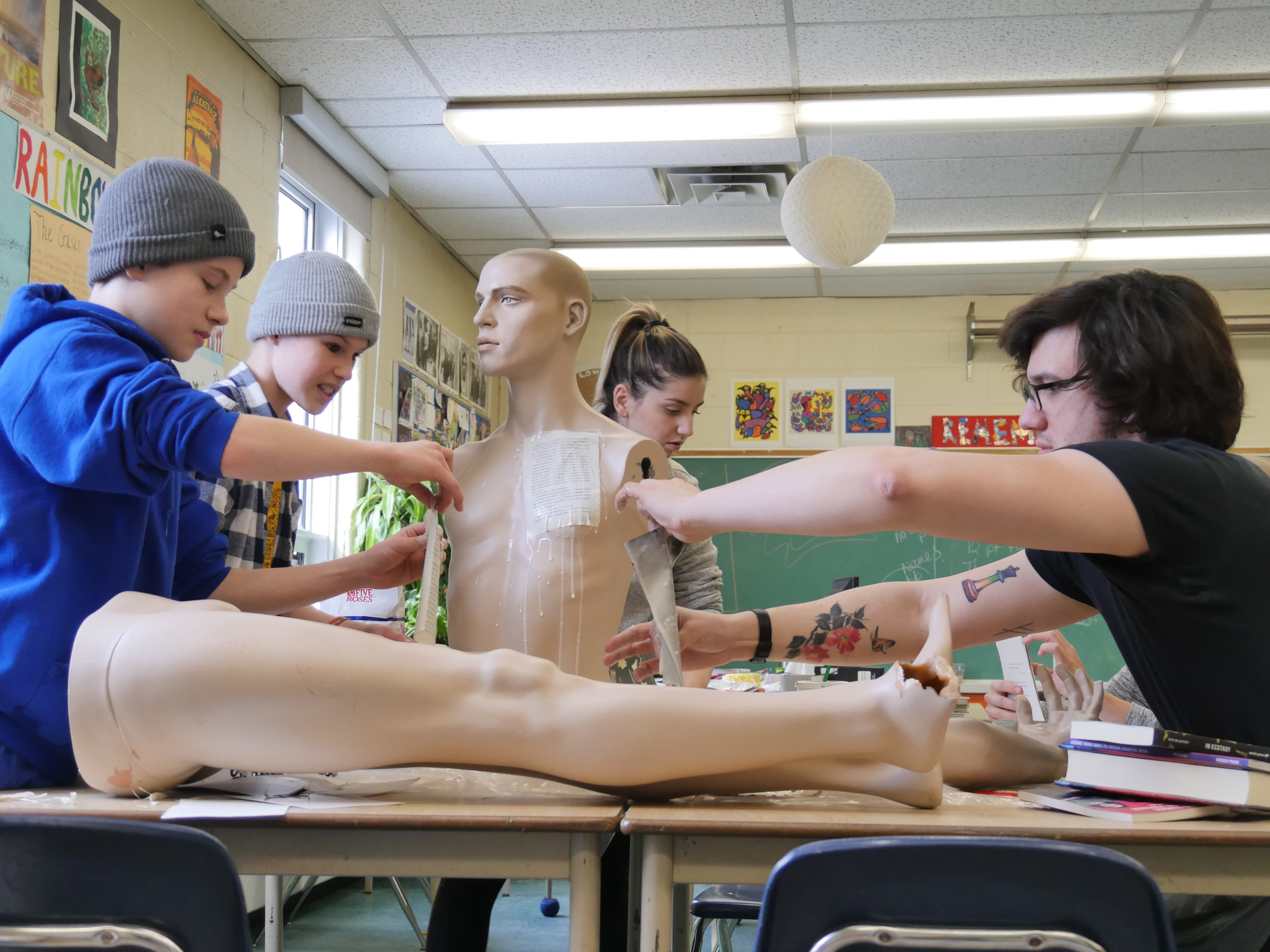Freeing Fahrenheit 451
In early 2019, eighth grade students from Delta Alternative Senior School and teacher candidates from the Ontario Institute for Studies in Education (OISE) at the University of Toronto read Ray Bradbury’s (1953) dystopian novel, Fahrenheit 451. This canonical text, often taught in schools, explores a futuristic America where censorship is paramount, knowledge restricted, and all literature is outlawed and destroyed. Inspired by the text and alert to the current local and global crises, students and teacher candidates developed creative responses to disrupt notions of the canon and resist colonial logics related to whose stories get told and whose get erased, and in what ways. Participants made Fahrenheit 451 their own, literally and figuratively. They re-made and re-storied the novel through arts practices that represent individual and collective critical interpretations in relation to current social and political injustices. Free 451 is a compilation of whiteout poems that students and teachers made in response to, and on the pages of Fahrenheit 451.






















